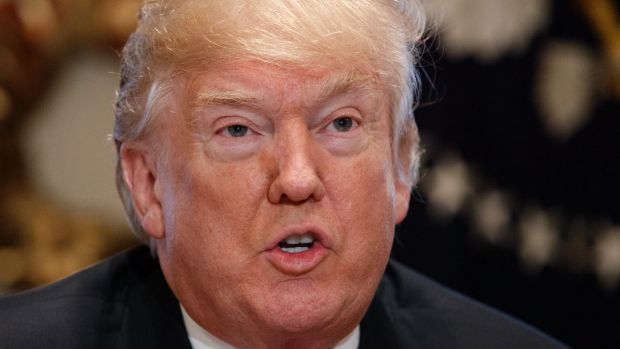Oil prices hit their highest levels in 3½ years overnight as traders responded to the prospect of US President Donald Trump announcing he will tear up the Iran nuclear deal and reinstate sanctions.
With Brent crude above $US76 a barrel and America’s domestic benchmark, West Texas Intermediate, above $US70 a barrel – both breaching levels last seen in late 2014 when the oil price was in an OPEC-induced freefall that saw it plunge below $US30 a barrel early in 2015 – the import of the decision on Wednesday morning our time for the US and the rest of the world is significant.
Before former president Barack Obama lifted the sanctions in mid-2015 in exchange for limitations to Iran’s nuclear program, they had hit Iran’s oil sales hard, taking about a million barrels a day out of the market.
Analysts estimate their reimposition by Trump could see anything between 300,000 and 600,000 barrels a day again withdrawn from the market, although Asian economies, and perhaps China in particular, would no doubt see an opportunity to buy cheaper oil given they would probably be unaffected by any new sanctions.
That might not be the case for developed economies, with the sanctions the US administration imposed on some Russian businessmen and companies earlier this year (and since deferred) proving a template. Those sanctions included a ban on US citizens or companies doing business with those Russian individuals and entities or non-Americans who knowingly facilitated transactions with them.
A similar set of provisions in relation to Iran would probably stop developed world economies – including those, like France, the UK, Germany and the broader European Union, which (along with China and Russia) signed the 2015 agreement – from doing business with Iran. The Europeans have been lobbying Trump hard, and personally, in recent weeks to try to convince him not to act.
It is conceivable that Trump will try to buy some time to allow his allies to develop a new deal, one acceptable to him, to replace arrangements that he has described as the “worst deal ever negotiated”.
If he doesn’t, however, it will have a material impact on the oil market and an oil price already being inflated by a confluence of influences. The biggest is the continuation of the pact OPEC and some key non-OPEC producers made to reduce their production after the original attempt to stunt the growth of the US onshore oil sector by flooding the market with production back-fired, spectacularly.
The reduction in supply even as global economic growth and demand for oil has strengthened has more than offset what is now record production of about 10 million barrels a day from the US shale producers. Global oil inventories, still bloated a year ago, have been reduced to around their five-year average.
Exacerbating the impact of OPEC’s cuts is the economic and political crisis within Venezuela – which once produced 3 million barrels a day but now produces about 1.5 million barrels, with output still declining – the tensions and risks being generated as a Saudi-led coalition is at war with Iranian-backed rebels in Yemen, and Saudi’s ambition of achieving even higher prices to balance its budget and maximise the value of the state-owned Aramco when it floats the energy giant next year.
Read the full article written by Stephen Bartholomeusz at the Sydney Morning Herald.

